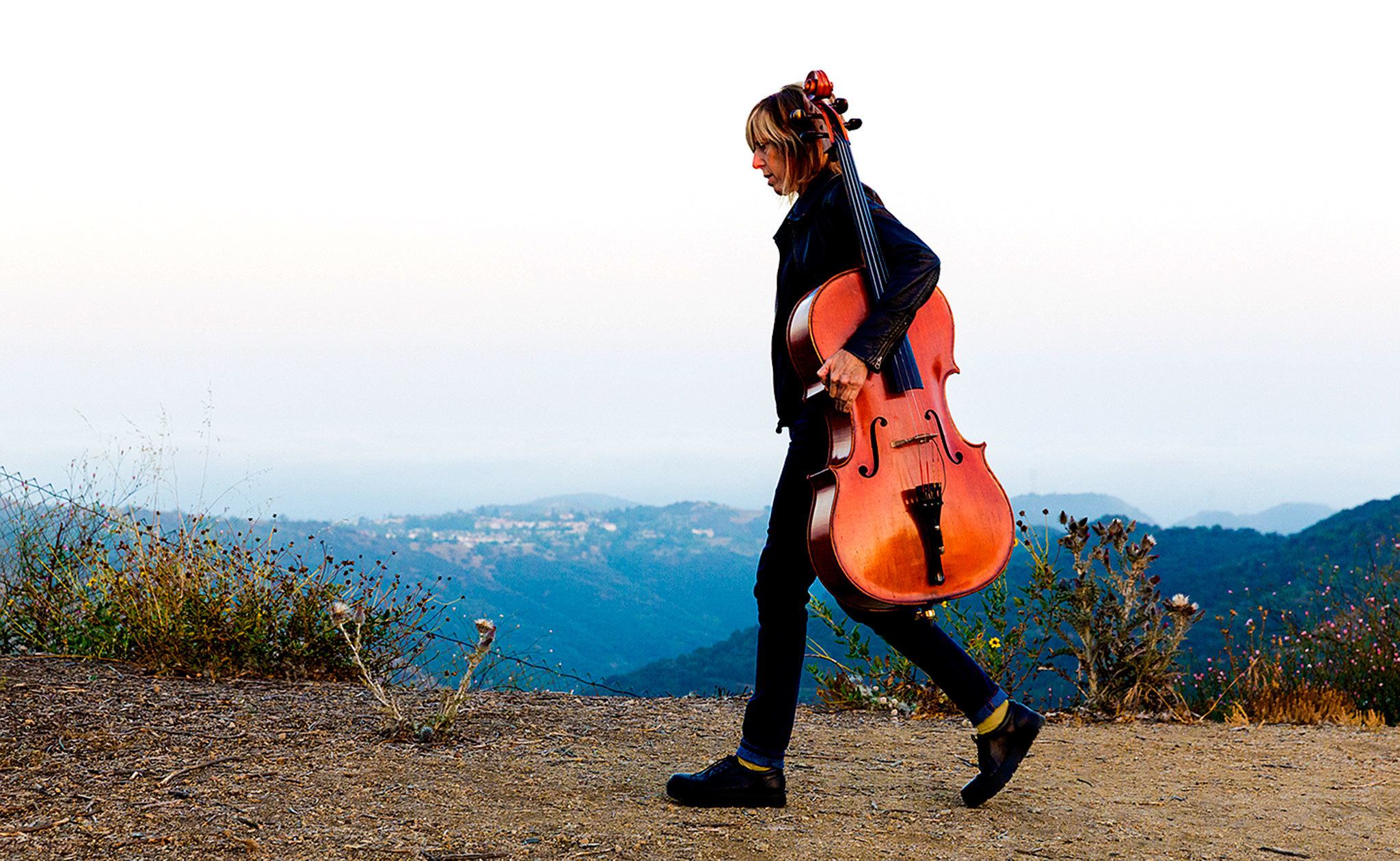By Allison Stewart
Chicago Tribune
Before cellist Alison Chesley began a solo career under the name Helen Money, she was in the much-touted, underperforming Chicago power pop band Verbow with Jason Narducy.
After Verbow broke up in the early 2000s, Chesley, a Southern California transplant with a master’s in cello performance from Northwestern University, remained in Chicago and made a living doing session work, often at friend Steve Albini’s Electrical Audio studio.
She soon became the experimental cellist’s version of a utility infielder, working with local bands such as Poi Dog Pondering and indie acts such as Broken Social Scene but also doing a brisk business in metal bands, recording and touring with Disturbed, Russian Circles, Anthrax and Agalloch.
Money’s own music has grown correspondingly heavy: Her fourth solo album, “Become Zero,” is a grim and beautiful mediation on the recent deaths of Chesley’s parents. It’s a heartbreaking work of staggering avant-metal, to the extent that it can be classified at all.
Chesley usually performs alone with her cello and effects pedals. She recently got on the phone to talk about going dark, playing live and why no one ever makes fun of cellists. The following is an edited version of that conversation:
Q: Do you find that the cello is something that automatically confers respect, like a British accent? Do people automatically assume that you’re smart?
A: I never thought of it that way (laughs). People are intrigued by it and they love it. That instrument resonates with so many people. But I think you’re right, maybe it does command respect. To see someone onstage with a cello — unless you’re jaded, you’re going to be listening and you’re going to be curious.
Q: When you were in Verbow, you were on a major label, you had buzz, you got dropped. You went through the whole cycle that so many people did. Do you look back on it fondly?
A: Oh, yeah. The people I was making music with — Jason Narducy, we started the band together and he continues to be a close friend. I don’t regret any bit of music I did with him, or any show I played with him. I regret that we didn’t really get a shot that we should have gotten, but we’re really fortunate that each of us are still able to do what we’re doing. We can’t complain.
Q: In Chicago during the mid-’90s, there was so much amazing music being made in different pockets — Smashing Pumpkins, Liz Phair, Red Red Meat.
A: I still consider Chicago my home, my boyfriend and I still have a place there. I’m so grateful I was there when all that was going on. It was such an amazing place to be, to see bands, the studios that were going on at that time, Electrical Audio and Soma. It was a great place to be.
Q: Having grown up listening to the Who and punk rock, when you first started playing the cello, it must have been a quite a juxtaposition, going to this beautiful and hushed (classical) world.
A: I would call it beautiful and powerful. The first piece of music I really got into was the Dvorak piano concerto; my dad bought me a copy of that record. If you listen to that piece, it’s very dark. I think I gravitate toward that music anyway, so when my brother first played me the Who, there was something I was already attracted to and I got into. … I was looking to express myself more as someone who was rebellious and not just a good, classical musician.
Q: There’s an increasing heaviness in your music, it seems.
A: I didn’t think my music would keep getting heavy, but it kind of has. I don’t think of my music as cerebral, I think of it as more visceral. I’m trying to become a better writer, a better composer, to maybe have more tools I can use to express myself.
Q: There’s piano on this album, and electronic elements that weren’t there before. At a certain point, do you reach the limits of what you can do with just (a cello)?
A: I don’t think I’ve reached that with my cello, I just kind of wanted to hear something different. I get a little tired of the sound I’m able to get. I’ve always loved the piano, and I love the sound of the piano and the cello together. … I just kind of wanted to expand my palette a little bit. I also wanted to make a record where I didn’t have to worry about how I would pull it off live.
Q: At what point did you start to think to yourself, “I’m going to have to figure out how to play these live”?
A: After. Usually, I think about it while I’m doing it, but I was talking to (Thomas) while we were making the record, and he said, “You know, Alison, let’s just make a really good record, and you’ll figure it out.” And I thought, “OK,” and I did.
Talk to us
> Give us your news tips.
> Send us a letter to the editor.
> More Herald contact information.

























